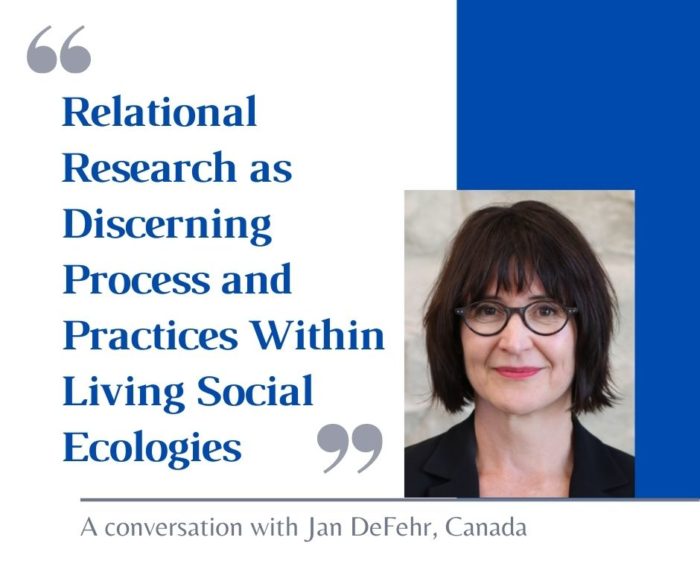Relational Research as Discerning Process and Practices Within Living Social Ecologies
In this interview, Tahereh Barati invites Jan DeFehr to consider what relational research means to her as a researcher and as a person. Jan describes relational research as dialogic. She notes two key differences between dialogically structured and methodologically driven research. First, a dialogic research process comes from the unique living changing social ecology at the centre of the research effort. Dialogic inquiry does not follow methodological agendas made elsewhere. A dialogic social inquiry process is consequently always local; each dialogic project can be trusted to produce its own unrepeatable research process. Participants in a dialogic inquiry process are connected with the inquiry process in every phase of the inquiry effort. As participants begin to respond to the research question, the research process begins to take shape. Second, the dialogic researcher’s role changes from the conventional aggrandized analyst of participants’ words, to the more shared role of respondent. Just as mutual responsivity is the primary activity in dialogic processes (John Shotter), mutual responsivity is the primary activity of dialogic research. Responding, not data analysis, generates understanding and possibility in dialogic social inquiry. Jan suggests that dialogic social inquiry fits with who she prefers to be in all aspects of her life.
Jan DeFehr, Ph.D.
Jan is an assistant professor in the Faculty of Education at the University of Winnipeg in Manitoba, Canada. She received her PhD in social and behavioral sciences from the University of Tilburg. For more information, visit Jan’s Associate page.
Click on the image to access the video.
On YouTube, to add subtitles and choose your language: click CC at the bottom of the video to turn subtitles on, then click the Settings icon, go to Subtitles/CC, choose English or Auto-Translate and your desired language.

